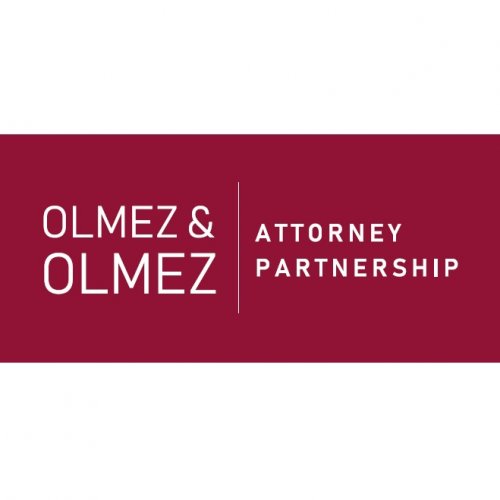Best Nonprofit & Charitable Organizations Lawyers in Kartal
Share your needs with us, get contacted by law firms.
Free. Takes 2 min.
List of the best lawyers in Kartal, Turkey
About Nonprofit & Charitable Organizations Law in Kartal, Turkey
Nonprofit and charitable organizations in Kartal, Turkey play a crucial role in supporting various societal needs ranging from education, healthcare, to social services and beyond. These entities are primarily guided by laws and regulations that aim to promote transparency, accountability, and integrity in their operations. The Turkish legal framework provides specific structures such as associations and foundations to facilitate these entities, ensuring they are able to function effectively while adhering to the national standards. The regulatory environment in Kartal is part of the broader Turkish legal system but features localized considerations to cater to its unique demographic and economic factors.
Why You May Need a Lawyer
Engaging a lawyer for nonprofit and charitable organizations in Kartal is advisable for several reasons:
- Establishing a Nonprofit: Legal guidance is essential when setting up an organization to ensure compliance with local and national laws.
- Regulatory Compliance: Lawyers help organizations understand and adhere to the continuous regulatory and reporting requirements.
- Taxation Issues: Nonprofits often navigate complex tax codes to maintain their tax-exempt status, where legal advice is invaluable.
- Corporate Governance: Legal counsel can assist in establishing proper governance frameworks to enhance accountability and efficiency.
- Conflict Resolution: Nonprofits may face disputes internally or with external parties where legal intervention can help resolve issues amicably.
Local Laws Overview
In Kartal, like the rest of Turkey, the governance of nonprofit and charitable organizations is structured under different legal entities such as associations and foundations, each with unique requirements:
- Associations: Require at least seven individuals for formation and must adhere to regulations prescribed by the Turkish Civil Code.
- Foundations: Involve endowments established by real or legal persons, focusing more on asset management and sustainability.
- Registration and Compliance: Organizations need to be registered with the relevant government bodies, and regular updates on activities and financial statements are mandatory.
- Tax Obligations: Understanding VAT exemptions and eligibility for corporate tax adjustments is critical for financial planning.
- Reporting Requirements: Nonprofits are expected to submit periodic reports detailing organizational activities and financial transactions.
Frequently Asked Questions
What is the process to establish a nonprofit organization in Kartal?
Typically, the process involves drafting a charter, establishing a founding board, and registering with the relevant authorities. Consulting a lawyer will streamline the process, ensuring compliance with all legal requirements.
Are there any local funding opportunities available for nonprofits?
Yes, various local and national government schemes, as well as private grants, are available. These often require compliance with specific regulations, which a legal expert can help navigate.
How can our organization maintain its tax-exempt status?
Regular compliance with reporting requirements and ensuring the correct application of relevant tax legislations are crucial. Legal counsel can provide strategies to continually meet these requirements.
What are the differences between an association and a foundation?
Associations are member-based organizations focusing on collective activities, while foundations concentrate on asset management for specified ongoing activities. Each has distinct legal and structural requirements.
What are the reporting requirements for nonprofits?
Nonprofits must submit detailed activity reports and financial statements to the relevant government agencies periodically. This maintains transparency and accountability.
Can a nonprofit engage in commercial activities?
Yes, but such activities must align with the nonprofit's objectives and profits should primarily support the organization’s mission.
What is the legal structure of a nonprofit board?
A nonprofit board typically involves at least three directors who govern the organization’s operations in compliance with legal and ethical standards.
Are there specific compliance audits for nonprofits?
Yes, nonprofits may be subject to audits by government authorities to ensure adherence to legal obligations and standards.
How can a nonprofit dissolve legally?
The dissolution process requires an orderly closing of operations, settlement of obligations, and distribution of remaining assets per legal stipulations. Legal advice is crucial for a smooth process.
What anti-fraud measures should a nonprofit implement?
Implementing strong governance policies, conducting regular audits, and maintaining stringent financial controls are vital measures to prevent fraud.
Additional Resources
Consider consulting the following resources:
- Ministry of Interior, Directorate of Associations: Offers guidance on legal frameworks for associations.
- General Directorate of Foundations: Responsible for regulating foundations, providing necessary guidelines and resources.
- Association of Civil Society Development Center: Provides support and resources to non-governmental and nonprofit organizations in Turkey.
Next Steps
If you require legal assistance for your nonprofit or charitable organization in Kartal, Turkey, consider the following steps:
- Consult with a lawyer specializing in nonprofit law to discuss your organization's specific needs.
- Reach out to local legal aid organizations that can provide resources and initial consultations.
- Gather and organize all necessary documentation related to your organization's operations and governance.
- Engage in workshops or seminars offered by local NGOs or government bodies to stay informed about current laws and practices.
Lawzana helps you find the best lawyers and law firms in Kartal through a curated and pre-screened list of qualified legal professionals. Our platform offers rankings and detailed profiles of attorneys and law firms, allowing you to compare based on practice areas, including Nonprofit & Charitable Organizations, experience, and client feedback.
Each profile includes a description of the firm's areas of practice, client reviews, team members and partners, year of establishment, spoken languages, office locations, contact information, social media presence, and any published articles or resources. Most firms on our platform speak English and are experienced in both local and international legal matters.
Get a quote from top-rated law firms in Kartal, Turkey — quickly, securely, and without unnecessary hassle.
Disclaimer:
The information provided on this page is for general informational purposes only and does not constitute legal advice. While we strive to ensure the accuracy and relevance of the content, legal information may change over time, and interpretations of the law can vary. You should always consult with a qualified legal professional for advice specific to your situation.
We disclaim all liability for actions taken or not taken based on the content of this page. If you believe any information is incorrect or outdated, please contact us, and we will review and update it where appropriate.









